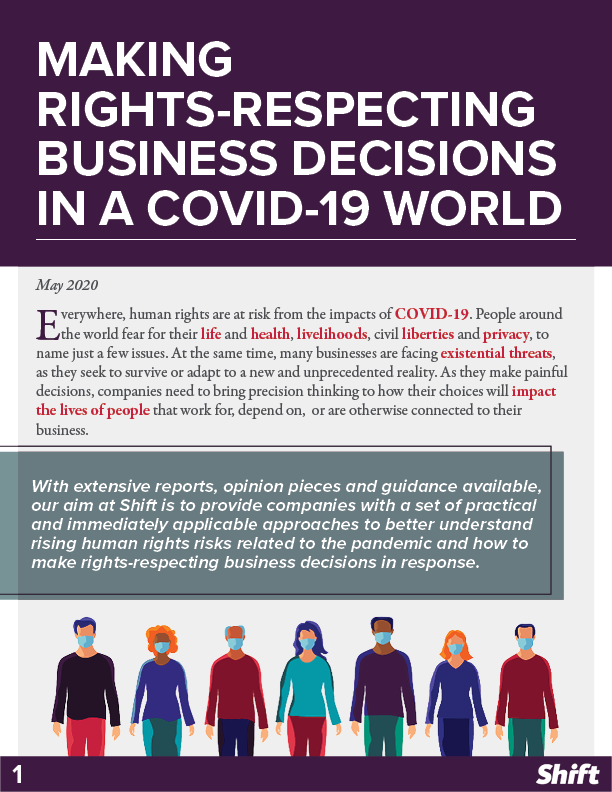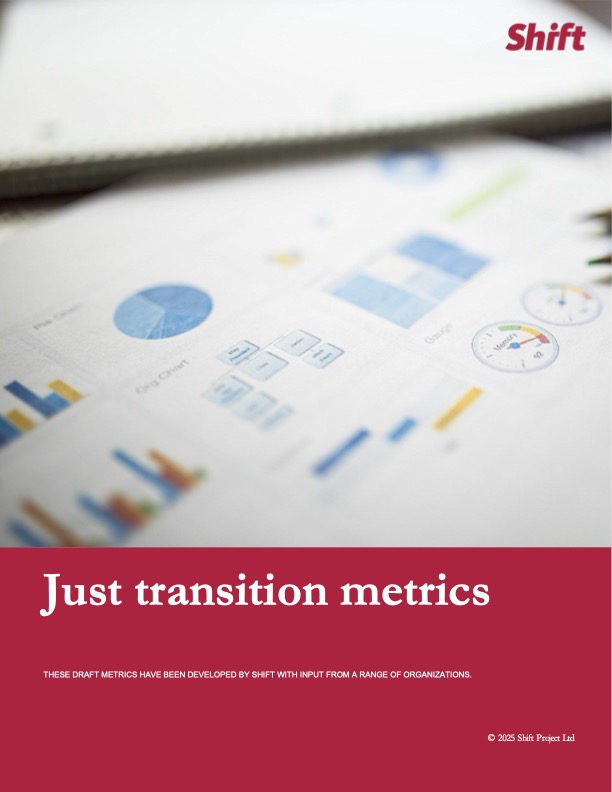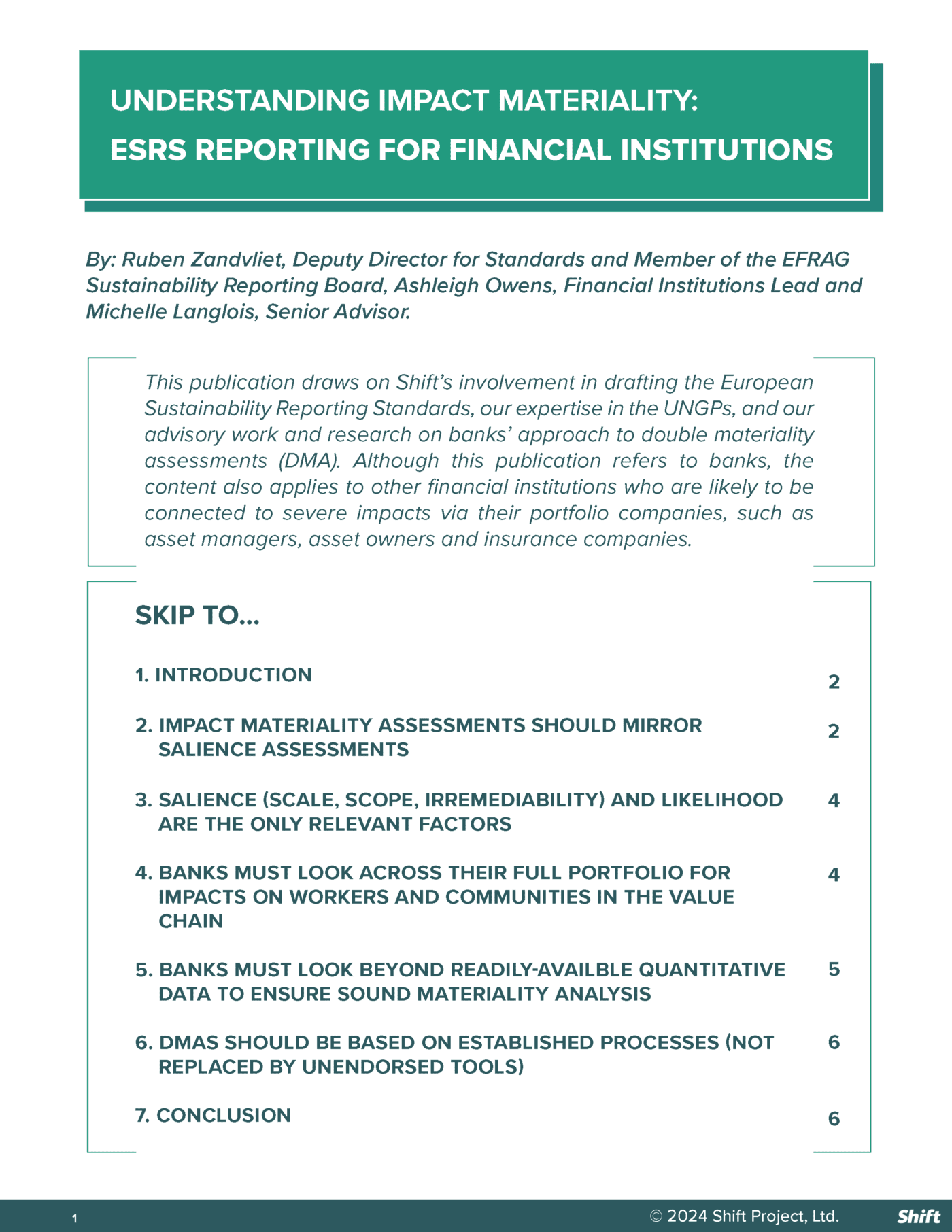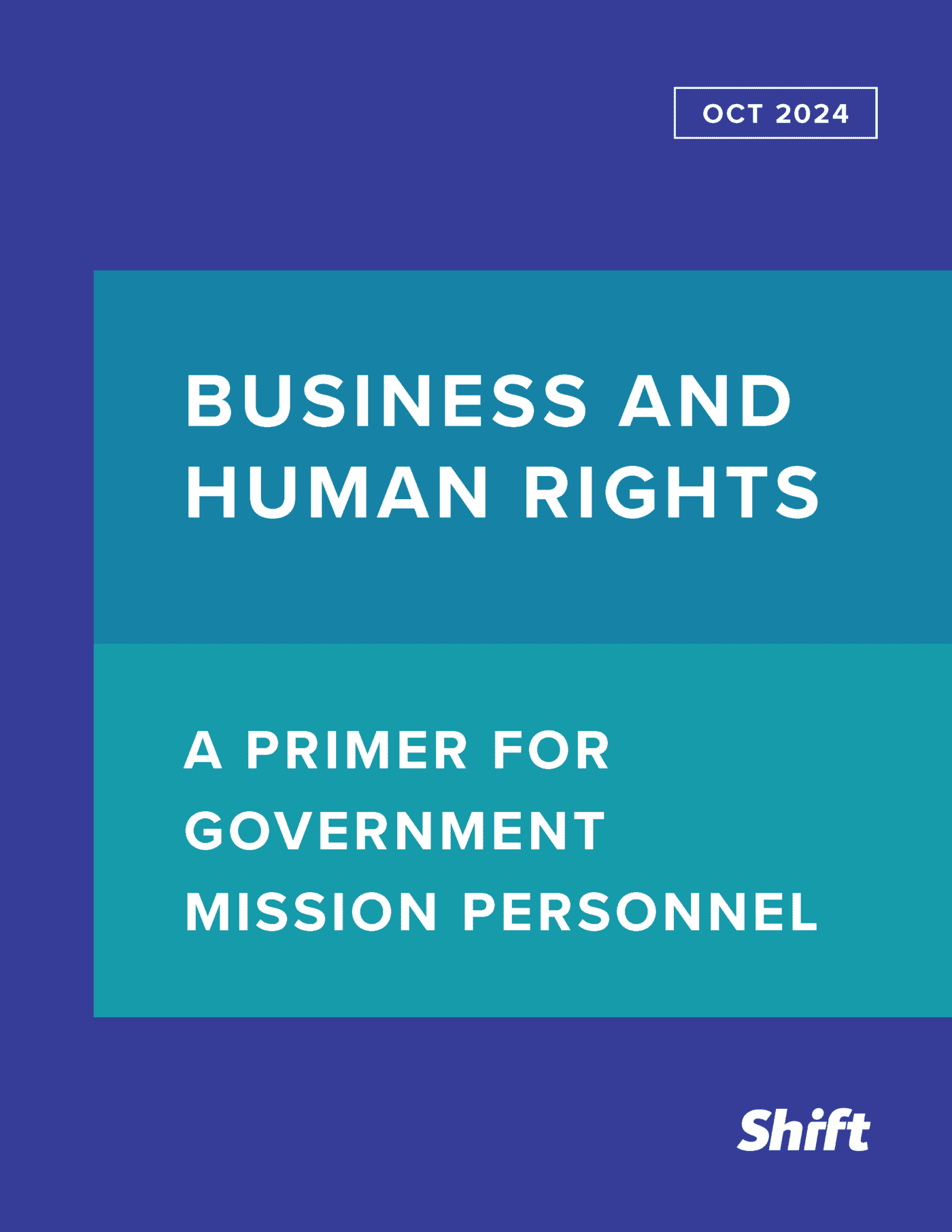A version of this article originally appeared in Ethical Corporation Magazine
This article is available in PDF format. To download it click here.
The human toll of COVID-19 is growing daily, with over 3 million confirmed cases globally and 26 million unemployment claims in the US alone – well before April is out. The burden is falling disproportionately on the people least able to bear it: those in low-paying jobs, exposed to health risks on the frontline of the pandemic response; losing those jobs altogether in western workplaces and overseas supply chains; or cooped up in worker dormitories far from home and without protection. Against this backdrop, the reactions of business to the pandemic are under as much scrutiny as those of governments. Even mainstream business media are keeping a log of the ‘sinners and saints.’
One clear rule of thumb is emerging as to who is getting their response to the COVID-19 crisis (at least mostly) right: those companies that focus first on the most vulnerable.
As the accounting continues, one clear rule of thumb is emerging as to who is getting their response to the crisis (at least mostly) right: those companies that focus first on the most vulnerable. The language of ‘vulnerability’ peppers the news and commentary as never before. Yet it is far more than just a label for the people who stand to lose the most as this crisis unfolds. It is the essential lens we must apply if a new stakeholder capitalism is to succeed: the difference between how our economies have worked in the past and how we need them to work going forward.
Before the pandemic hit, there was already a growing movement away from Milton Friedman’s idea that business should focus on maximizing shareholder returns. The gross and growing inequalities in our societies are the now inescapable result of externalizing risks and costs of business onto vulnerable ecosystems, workers and communities.
And so, a return to a supposedly kinder ‘stakeholder’ capitalism had begun to grow in favor, at least in most developed economies. It called for business to respond to the interests of ‘stakeholders’ beyond shareholders alone. In just the last nine months we had seen nearly 200 CEOs espouse the idea in last year’s Business Roundtable statement; the head of the world’s largest asset manager, BlackRock, urge company leaders to take it seriously; and the Davos Manifesto from January’s World Economic Forum identify it as essential to, “shared and sustained value creation.”
Yet this new narrative of ‘stakeholder capitalism’ always risked being far less radical than it appeared – potentially even the ‘virtuous side hustle’ some have feared from the get-go. Why? At least in part because the categories of stakeholder beneficiaries – employees, suppliers, customers and communities – were defined so generically that they necessitated little real change from the status quo.
The new narrative of ‘stakeholder capitalism’ always risked being far less radical than it appeared – potentially even the ‘virtuous side hustle’ some have feared from the get-go.
Take ‘employees.’ The term includes those generously compensated in safe jobs as well as those whose pay, security and benefits are vulnerable to cost-cutting initiatives. It also excludes altogether people whose roles are externalized by evolving business models and strategies into categories of ‘contractor’ or the nominally ‘self-employed.’ The category of ‘suppliers’ blurs the line between large, strategic partners and small or more remote businesses whose cash flow is fragile and whose workers’ wages are the first to give under pressure.
Similarly, ‘customers’ are by definition those who can afford to access a company’s products or services; yet the term does not call out those who are stretched to do so, and excludes, of course, those who simply can’t. Meanwhile, ‘communities’ can continue to be viewed as the beneficiaries of corporate philanthropy rather than groups whose health, livelihoods and opportunities may be directly affected by company actions and decisions.
With all this flexibility in interpretation, the new ‘stakeholder capitalism’ built a broad church. It certainly embraces companies committed to understanding how business practices may harm people across their value chain, and to reducing those impacts. However, it also readily accommodates companies hoping for little more than marginal adjustments to usual practice, or continuing to bank on business models that embed risks to people at their core. Little surprise, then, that some CEOs seemed taken aback to find that their new commitments raised expectations of real and substantive changes to address the inequalities of today.
Yet this pandemic, with all its awful consequences, is fast removing the ambiguity about what matters. At least in the Global North, it is showing the lens of vulnerability to be essential for businesses to determine how they should act, and a guide for how popular opinion will react. This focus on vulnerable people, once seen by many as idealistic, is becoming a primary expectation from investors, public figures, civil society and business commentators alike.
A focus on vulnerable people, once seen by many as idealistic, is becoming a primary expectation from investors, public figures, civil society and business commentators alike.
Companies are making decisions about their employees, being explicitly called on to take pay cuts at the top to preserve jobs at the bottom – and increasingly doing so. Some businesses quickly committed to keep paying the hourly workers providing canteen, cleaning or other services in their facilities; a growing number have increased sick leave and benefits to workers in gig economy roles, whose finances and health are often most at risk.
We see the same expectation to focus on vulnerability in supply chains. More companies are now committing to ease cash flow for businesses in their value chains whose viability and workforces are at risk by paying smaller suppliers first and fastest or extending loans or deferred payment terms to customers in need.
Meanwhile, companies are identifying and prioritizing those customers who are most exposed to harm, with grocery stores offering earlier hours to the elderly, and some key service providers prioritizing the vulnerable over those who can better cope. And we see businesses thinking afresh about impacts on communities. Some that can afford to make new hires are drawing from local, hard-hit populations; others are collaborating with governments to address systemic risks to those most in need.
Of course, the trend is far from universal. Many companies have genuinely little latitude in how they can respond, lacking both resilience and options. And far too many that are not so constrained have nevertheless defaulted to protecting their shareholders and leaders at the expense of the vulnerable.
But the tally is now being kept of which companies are rising to the occasion and which are failing the test. This is not a blip that will be forgotten, it is an acceleration and proliferation of an idea whose time had already come.
The same Milton Friedman who spawned the ‘shareholder primacy’ theory that stakeholder capitalism now proposes to replace, ironically also wrote, “Only a crisis, actual or perceived, produces real change. When that crisis occurs, the actions that are taken depend on the ideas that are lying around. That, I believe is our basic function: to develop alternatives to existing policies, to keep them alive and politically available until the politically impossible becomes politically inevitable.”
It can no longer be viewed as impossible to make it the ‘new normal’ once we emerge from the pandemic. We just need to make it inevitable.
The idea that businesses must look beyond generic categories of ‘stakeholder’ to hone in on those individuals in workplaces, supply chains, transportation networks and communities who are most vulnerable is alive and available. It is embodied in the UN Guiding Principles on Business and Human Rights: a ready blueprint for governments and businesses to reorient capitalism to protect and respect those most at risk: a true ‘stakeholder capitalism.’
Companies that have led the way in putting the UN Guiding Principles into practice have shown a more natural reflex to focus on the most vulnerable in their response to the crisis, getting it right while others have fumbled. Yet it is the crisis itself that is now taking the lens of vulnerability to scale. It can no longer be viewed as impossible to make it the ‘new normal’ once we emerge from the pandemic. We just need to make it inevitable.

 By Caroline Rees
By Caroline Rees




